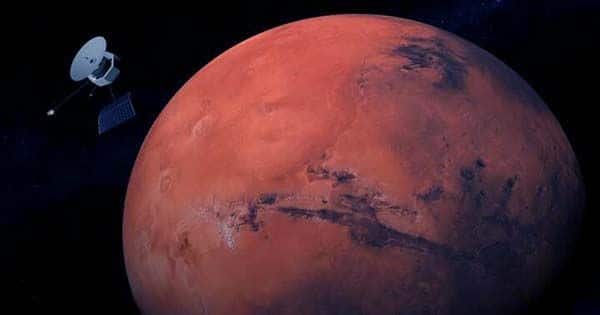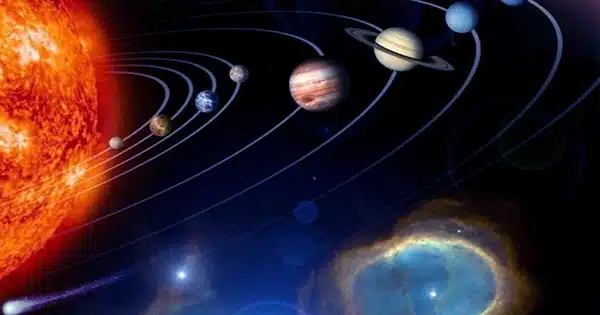A day on Mars lasts around 37 minutes longer than a day on Earth, but it appears that both planets are attempting to close the gap. NASA’s InSight lander data show that Martian days are getting somewhat shorter, and scientists aren’t sure why.
InSight was a Mars probe that conducted research experiments until its solar panels became caked in dust and it ran out of power in December 2022. Its primary mission was to research the innards of Mars, but it also carried a pair of radio antennas that could aid measure Mars’ rotation.
These antennas would connect to NASA’s Deep Space Network, a network of facilities on Earth. They could measure the stretching and shortening of the radio waves as the rotating planet moved the lander towards and then away from Earth as they received the signals over days and years. This is the Doppler effect, which is most noticeable when an ambulance siren sounds higher-pitched as it approaches you than when it is heading away from you.

The researchers evaluated data collected during InSight’s first 900 Martian days and accounted for elements such as solar wind and moisture in the Earth’s atmosphere. The scientists may next look for differences that were only due to changes in the rotational speed of Mars.
“What we’re looking for are variations that are just a few tens of centimeters over the course of a Martian year,” said lead author Sebastien Le Maistre. “It takes a very long time and a lot of data to accumulate before we can even see these variations.”
After that, the researchers discovered that Mars’ rotation is speeding up, albeit by a very small amount – 4 milliarcseconds each year – making the Martian day a few fractions of a millisecond shorter each year.
For the time being, it is unknown why the planet is speeding up. Our Moon has a significant impact on Earth’s rotation speed, and it is actually making our days slightly longer. Mars’ two moons, on the other hand, are significantly smaller and do not appear to be the perpetrators. Instead, the scientists speculate that it could be caused by shifting mass from ice accumulating on the polar caps or landmasses re-emerging after being submerged by glaciers.
The data can also help scientists determine how much Mars wobbles as it spins due to the swirling liquid in its core. They were able to estimate the core’s form and radius, which was between 1,112 and 1,150 miles (1,790 and 1,850 kilometers).
Although InSight is no longer collecting data, scientists will continue to mine the treasure trove it has amassed for years to come.
The findings were reported in the journal Nature. The video below explains the method used to measure the changing rotation speed.
















